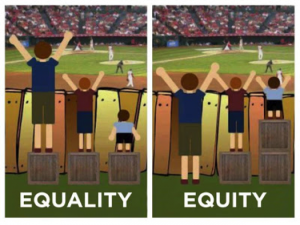PK1
Gold Member
- Jun 26, 2015
- 3,900
- 525
- 140
I propose a political philosophy that emphasizes two ideals:
1) Complete freedom to individuals that does not negatively impact other individuals within society, and
2) Fairness or fair opportunities for ALL individuals.
I realize concepts of freedom & fairness are not clear-cut, and that’s why these general ideas are initially referred to as “ideals” or a starting point for “ethical libertarianism”.
I am very open to constructive criticism or other comments ...
.
1) Complete freedom to individuals that does not negatively impact other individuals within society, and
2) Fairness or fair opportunities for ALL individuals.
I realize concepts of freedom & fairness are not clear-cut, and that’s why these general ideas are initially referred to as “ideals” or a starting point for “ethical libertarianism”.
I am very open to constructive criticism or other comments ...
.


